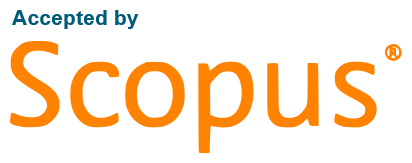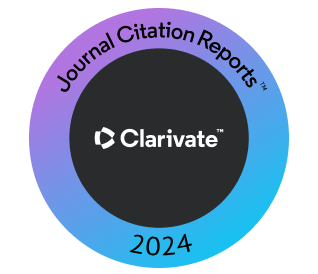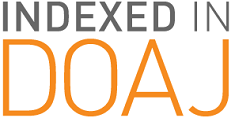A Sustainable Paperless Online System (SPOS) for Engineering Quality in Teaching: Koya University as a Case Study
DOI:
https://doi.org/10.14500/aro.10052Keywords:
Continuous academic development, Google Apps, online system, quality teaching, student feedback, sustainable system, teacher portfolio, teaching quality assurance.Abstract
Rapidly advancing computer based technologies offer many possibilities for innovation in educational and administrative assessment tasks which allow for a reliable real time reporting and feedback process. This paper considers the requirements for teacher assessments to become an accurate and reliable process. As a case study, the challenges of implementing such a system at Koya University have been considered. This paper examines how a paperless online system can support faculties' efforts for improving sustainable quality in learning and up-to-date assessment techniques. The proposed sustainable paperless online system (SPOS) uses Google Applications for Education that have been adopted at Koya university as a communications and collaboration medium to enhance its teaching quality. Such a system may enhance security, transparency and ease of use while consuming less time and resources and promoting green practice. The work throughout this paper explains how the initiative is engineered for achieving and monitoring a better quality in teaching.Downloads
References
Addison, W.E. and Stowell, J.R., 2012. Conducting research on student evaluations of teaching. In M.E. Kite (Ed.), Effective evaluation of teaching: A guide for faculty and administrators. Retrieved from the Society for the Teaching of Psychology web site: http://teachpsych.org/ebooks/evals2012/ index.php
Bunoti, S., 2010. The Quality of Higher Education in Developing Countries Needs Professional Support. [pdf] International Conference on Higher Education. Available at <http://www.intconfhighered.org/FINAL%20Sarah %20 Bunoti.pdf.> [Accessed in August 2013].
Cashin, W.E.,1995. Student ratings of teaching: The research revisited. IDEA Paper No. 32. Manhattan, KS: Kansas State University, Center for Faculty Evaluation and Development.
Cashin, W.E., 1988. Student ratings of teaching: A summary of the research. IDEA paper No. 20. Manhattan, KS: Kansas State University, Center for Faculty Evaluation and Development
Centra, J.A., 1993. Reflective faculty evaluation: Enhancing teaching and determining faculty effectiveness. San Francisco, CA: Jossey-Bass Inc.
Costin, F., Greenough, W.T. and Menges, R.J., 1971. Student ratings of college teaching: reliability, validity, and usefulness. Review of Educational Research, 41(5), pp.511-535.
Colbert, P., Wyatt-Smith, C. and Klenowski, V., 2012. A systems level approach to building sustainable assessment culture: moderation, quality task design and dependability of judgment. Policy Future in Education, 10(4), pp.387-402.
Darling-Hammond, L., 2010. The flat earth and education: How America’s commitment to equity will determine our future. New York: Teachers’ College Press.
Deane, L. and Krause, K., 2012. Towards a Learning Standards Framework. [pdf] Available at: http://www.uws.edu.au/__data/assets/pdf_file/0010/398620/Learning_Stds_Framewk_Final_Dec_2012.pdf
Dlawer, A.A., 2010. A Road Map to Quality; reforming the system of higher education and scientific research in the Kurdistan region of Iraq. A report on the main achievements from 1st Nov. to 1st Sept. 2010. Ministry of Higher Education and Scientific Research-KRG. [online] Available at: <http://www.calameo.com/read/000407881843424cb05ed> [Accessed 03 March 2014].
Edgerton, R., Hutchings, P., & Quinlan, K. (1991). The teaching portfolio: Capturing the scholarship of teaching. Washington, DC: American Association for Higher Education.
Fabric, H., 2010. Learning Our Lesson: Review of Quality Teaching in Higher Education. [pdf] Available at: <http://www.oecd.org/edu/imhe/44058352.pdf> [Accessed 10 March 2014].
Feldman, K.A., 1997. Identifying exemplary teachers and teaching: Evidence from student ratings. In R. P. Perry & J. C. Smart (Eds), Effective teaching in higher education: Research and practice (pp.93-143). NY: Agathon Press.
Freyd, M., 1923. A graphic rating scale for teachers. Journal of Educational Research, 8(5), pp.433-439.
Google Applications for Education. [online] Available at: http://www.google.com.iq/enterprise/apps/education/ [Accessed in February 2013].
Henard, F. and Leprince-Ringuet, S., 2008. The path to quality teaching in Higher Education. Unpublished.
Kaplan, M., 1998. The teaching portfolio. CRLT Occasional, (11), pp.1-8.
Lang, J. and Bain, K., 1997. Recasting the teaching portfolio. The Teaching Professor, 11(10), pp.1-1.
Marsh, H.W., 1987. Student’s evaluations of university teaching: Research findings, methodological issues, and directions for future research. International Journal of Educational Research, 11, .pp253-388.
Marsh, H., 2007. Students’ evaluations of university teaching: Dimensionality, reliability, validity, potential biases and usefulness. In R. P. Perry & J. C. Smart (Eds.), The scholarship of teaching and learning in higher education: An evidence-based perspective (pp.319-383): Springer Netherlands.
McKeachie, W. J. and Lin, Y. G., 1979. A Note on Validity of Student Ratings of Teaching. Educational Research Quarterly, 4(3), pp.45-47.
Murphy, P., 2009. Applying a sociocultural approach to assessment theory and practice: Issues for summative and formative assessment. The Assessment Issues and Practice conference, Queensland University of Technology, Brisbane.
Popham, W. J., 2008. Transformative assessment. Alexandria, VA: ssociation for Supervision and Curriculum Development.
Roshani, D., 2006. Integrated collaborative building design using internet technology solutions, ZANÍN, 29(1), pp.10-26.
Seldin, P., 2004. The Teaching Portfolio. (2nd ed.). Bolton, MA: Anker Publishing, Inc.
Stobart, G., 2009. Testing times: the uses and abuses of assessment. London: Taylor & Francis e-Library.
Webometrics Report. [online] Available at: http://www.webometrics.info/en/aw/iraq [Accessed in July 2014].
Wiedmer, T., 1998. Portfolios: A means for documenting professional development. Journal of Staff, Program and Organization Development, 16(1), 21-37.
Willis, J., 2010. Assessment for learning as participative pedagogy. Assessment Matters, 2, pp.65-84.
Wilson, B., 2010. What do assessments measure? Paper presented at preparing teachers for roles and challenges in assessment. International investigation conference, Faculty of Education, May 6-7. Queen’s University, Ontario, Canada.
Downloads
Published
How to Cite
Issue
Section
License
Authors who choose to publish their work with Aro agree to the following terms:
-
Authors retain the copyright to their work and grant the journal the right of first publication. The work is simultaneously licensed under a Creative Commons Attribution License [CC BY-NC-SA 4.0]. This license allows others to share the work with an acknowledgement of the work's authorship and initial publication in this journal.
-
Authors have the freedom to enter into separate agreements for the non-exclusive distribution of the journal's published version of the work. This includes options such as posting it to an institutional repository or publishing it in a book, as long as proper acknowledgement is given to its initial publication in this journal.
-
Authors are encouraged to share and post their work online, including in institutional repositories or on their personal websites, both prior to and during the submission process. This practice can lead to productive exchanges and increase the visibility and citation of the published work.
By agreeing to these terms, authors acknowledge the importance of open access and the benefits it brings to the scholarly community.
Accepted 2016-05-09
Published 2015-01-06
















 ARO Journal is a scientific, peer-reviewed, periodical, and diamond OAJ that has no APC or ASC.
ARO Journal is a scientific, peer-reviewed, periodical, and diamond OAJ that has no APC or ASC.